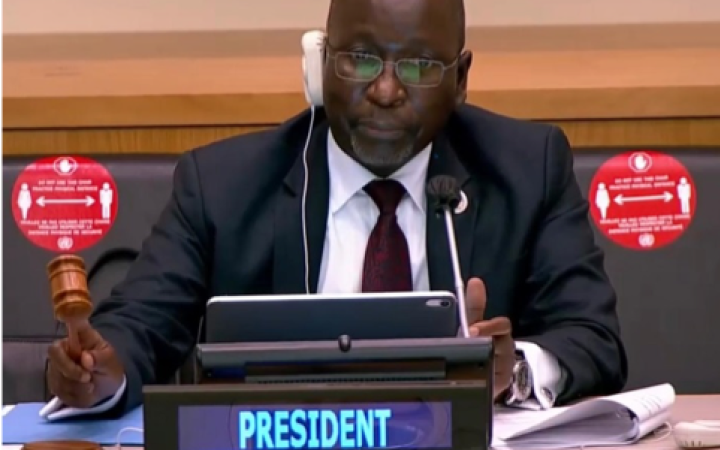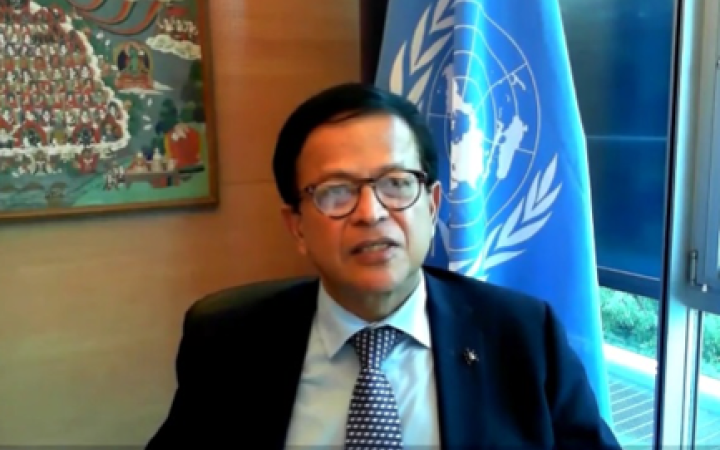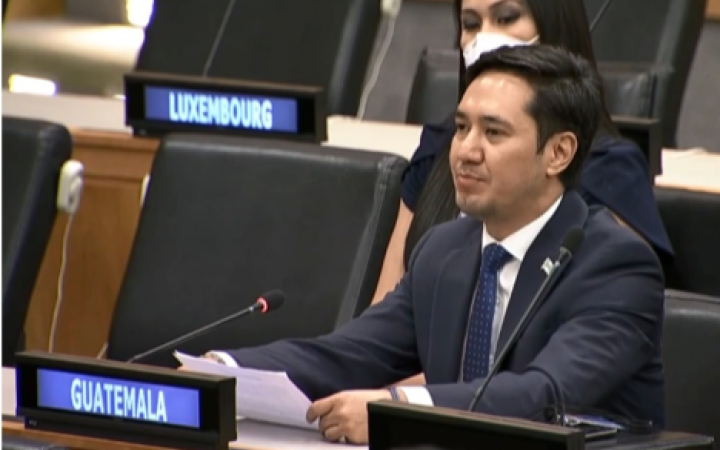9 June 2021, New York, USA - Following the Report of the Secretary-General (E/2021/49), the United Nations Institute of Training and Research (UNITAR) Headquarters and its office in New York started preparations for delivering the report to the United Nations Member States, and consultations in order to produce the legislative response from the Economic and Social Council (ECOSOC) of the United Nations Member States.
After consultations, the Permanent Mission of Guatemala took the lead in facilitating the draft resolution, covering three informal consultations via VTC among the ECOSOC Member States.
Consultations led to a consensus draft resolution contained in the document (E/2021/L.22) which was considered during the Managerial Session of the ECOSOC on Wednesday, 9 June 2021, and was adopted by consensus. The session was presided by H.E. Ambassador Collen Vixen Kelapile from the Permanent Mission of Botswana. The Executive Director of UNITAR and UN Assistant-Secretary General, Mr. Nikhil Seth, presented the report of the Secretary General and provided introductory remarks on behalf of UNITAR.
He stated that UNITAR's mission was to develops the capacities of individuals, organizations, and institutions, largely in developing countries, through high-quality learning solutions, driven by the goals and values of the United Nations. The scope of UNITAR’s programme covers all the pillars of the work of the United Nations such as peace and security, economic and social development and environmental sustainability.
The Executive Director also briefed the President and members of the ECOSOC on the work of the Institute during the past year. He explained how UNITAR was affected by the pandemic as most of its work had been delivered in the field and face-to-face before the pandemic. Fully utilizing the Institute’s virtual learning environment with the right IT tools helped with business continuity. Mr. Seth also shared how UNITAR now offers 80% of its work virtually, and the Institute recorded the largest outreach ever to more than 322,000 beneficiaries, mostly from developing countries. UNITAR has responded to the pandemic by increasing awareness and develop knowledge related to the crisis.
He went through the work of UNITAR in all its pillars of Peace, People Prosperity and Planet, and made reference to the work of its office in New York, led by Mr. Marco Suazo, in training delegates on the work of the Security Council, General Assembly and ECOSOC.
In summary, the resolution acknowledges:
- The alignment of UNITAR’s strategy with the 2030 Development Agenda and its Sustainable Development Goals;
- The significant growth in beneficiaries from countries in special situations, in particular African countries, the least developed countries, landlocked developing countries and small island developing States, as well as middle-income countries;
- The expansion of the Institute’s programming into new thematic areas, including health and nutrition, and our plans to further develop in the area of universal health coverage.
- Renews its appeal to Member States to provide voluntary non-earmarked contributions to the Institute;
- Welcomes the commitment of Member States and stakeholders to continue to support the Strategic Framework Fund;
- Encourages the Institute to continue to build and strengthen partnerships with all stakeholders, including United Nations system entities, the private sector, academia and civil society; and
- Recognizes the Operational Satellite Applications Programme as the United Nations satellite centre.
Mr. Seth stated that UNITAR is 100% voluntary funded, and the Institute has been growing and done well financially.
In closing, the Executive Director informed the Member States that the UNITAR board of trusties has created a Strategic Framework Fund to help achieve the Sustainable Development Goals learning and training. He also stated that the Strategic Framework Fund channels funds in support of beneficiaries in the developing countries and especially the 93 countries in special situations who need the UNITAR's services most.
After this the Permanent Representative of Guatemala, Ambassador Luis Lam Padilla, introduced the resolution (E/2021/L.22) noted during his intervention that UNITAR has grown to provide training to diplomats around the world by sharing knowledge and skills so that they can perform at their best in the United Nations diplomatic environment. Even during unprecedented circumstances as the COVID-19 pandemic, the Institute's work has adapted very efficiently.
Ambassador Lam Padilla also provided information on the draft resolution which recognizes the efforts made by UNITAR to continue providing its services and encourages it to continue with innovative approaches, in support of the Member States, the United Nations system and other actors. Guatemala welcomed the fact that the Institute has reached more beneficiaries in countries in special situations, and particularly highlighted the work also done in middle-income countries.
The resolution was adopted by consensus and cosponsored by 38 countries including Dominican Republic, Ecuador, Guatemala, Monaco, Nicaragua, Paraguay, Qatar Additional Co-Sponsors Include Algeria, Armenia, Bahrain, Bolivia, Botswana, Bulgaria, Chile, Costa Rica, Cuba, Egypt, El Salvador, Germany, Indonesia, Italy, Jamaica, Japan, Kenya, Kuwait, Mexico, Morocco, Mozambique, Panama, Peru, Philippines, Saint Vincent And The Grenadines, South Africa, Spain, Sudan, Thailand, Ukraine And Zambia.




